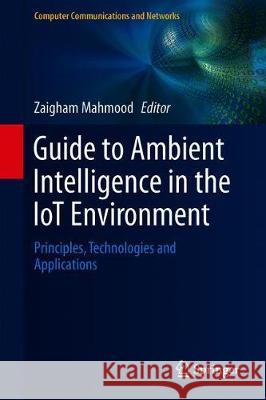Guide to Ambient Intelligence in the Iot Environment: Principles, Technologies and Applications » książka
topmenu
Guide to Ambient Intelligence in the Iot Environment: Principles, Technologies and Applications
ISBN-13: 9783030041724 / Angielski / Twarda / 2019 / 295 str.
Kategorie:
Kategorie BISAC:
Wydawca:
Springer
Seria wydawnicza:
Język:
Angielski
ISBN-13:
9783030041724
Rok wydania:
2019
Wydanie:
2019
Ilość stron:
295
Waga:
0.78 kg
Wymiary:
23.5 x 15.5
Oprawa:
Twarda
Wolumenów:
01











